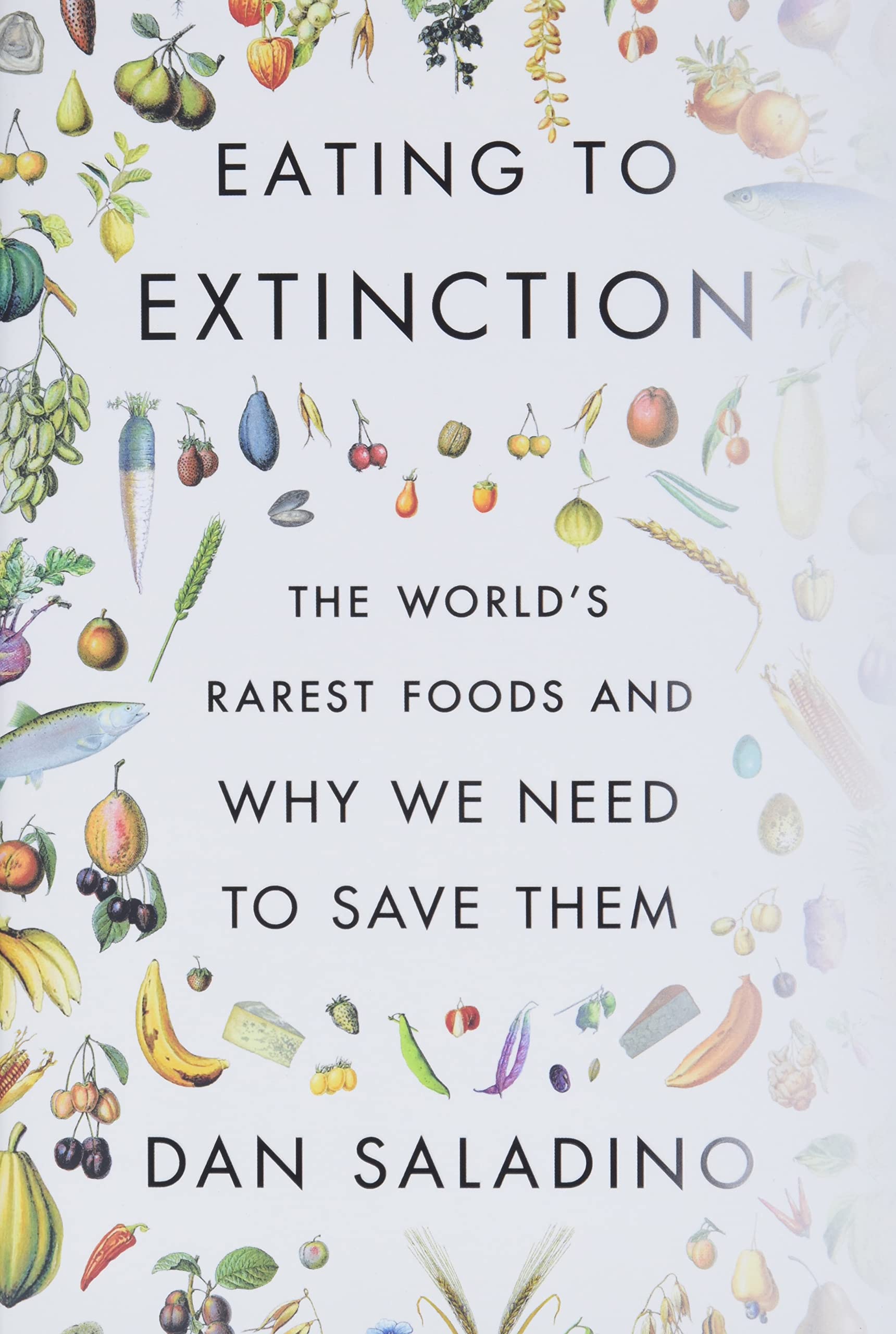Food journalist Don Saladino has assembled an encyclopedic array of gripping food stories collected from around the world. The message is simple yet cautionary: by homogenizing our world’s food supply into vast monocultures of genetically programmed crops such as the cultural staples of rice, corn, wheat, and soybean, these global markets are at risk of catastrophic losses.
Climate changes are currently evident as arable landscapes are threatened with or undergo droughts and/or floods, experience temperature fluctuations, and are threatened by the adaptability of pests. Even the animal markets are losing diversity in breeds of pigs, cattle, poultry, and others, making the uniformity of these animals vulnerable to disease, as witnessed recently by an outbreak of poultry diseases.
The author emphasizes the importance of variety in nature, as evidenced by the adaptations both plants and animals have undergone over the eons while striving to survive in changing or hostile surroundings. New strains of crops tend to overtake the local use of varietal versions, but there are consequences when usurping indigenous collections as evidenced by the unseen problems resulting from the “green revolution.”
This is a must-read book about our global food supply, the cultural and historical influences that framed the evolution of our food diversity, and the threat that industry and genetic uniformity pose to nature’s bounty.

